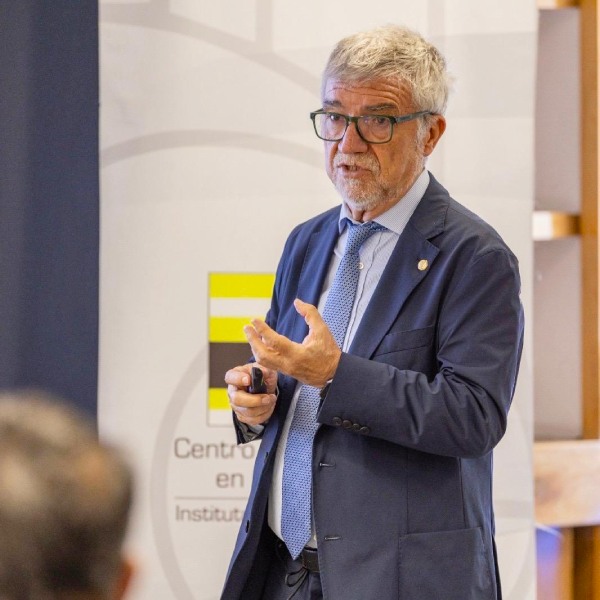
Reporter: Adda Avendaño | Photographer: Jorge Aguilar
Speakers highlight the need for collaboration among government, industry, and universities to advance this complex technology.
Computers, AI, and data are transforming society worldwide—even reshaping how science is carried out at supercomputing centers such as the Barcelona Supercomputing Center (BSC). This transformation has opened the door to designing chips capable of solving increasingly complex problems.
This point was emphasized by Dr. Mateo Valero, director of the BSC, who explained that this new way of advancing science has led to the development of the world’s fastest chips, processors, and accelerators.
However, he pointed out that only a handful of companies—such as Nvidia, AMD, and Apple—are currently designing these types of chips, while manufacturing is concentrated exclusively in TSMC and Samsung.
During his lecture, Chips and European Autonomy, delivered as part of the 3rd National Summer School on Microtechnology, Computer Architecture, and Systems for Semiconductor Chip Development (ENV2025)—organized by the Laboratory of Microtechnology and Embedded Systems at the Centro de Investigación en Computación (CIC) of the Instituto Politécnico Nacional (IPN)—Dr. Valero emphasized that neither Europe nor many other regions of the world design or manufacture these chips, and achieving technological independence represents a formidable challenge.
The Spanish expert noted that the BSC has been a pioneer in developing proprietary technology. Thanks to the adoption of RISC-V architecture—an open-source, royalty-free platform—the center has been able to design its own technology for over a decade, advancing research and high-performance microchip development.
He stressed that success in this race toward technological sovereignty requires strong collaboration between governments and universities. Building and designing cutting-edge technologies demands both specialized academic expertise and a workforce prepared to take on this major challenge.
Dr. Valero recalled that with the support of the Government of Spain, the Government of Barcelona, and the Universitat Politècnica de Catalunya, the Barcelona Supercomputing Center was established 20 years ago. Since then, it has become a pioneer in these developments and the most important research center of its kind in Europe. He also acknowledged that BSC’s early designs were based on the Lagarto Processor project, developed by CIC researchers, with whom they continue to collaborate and pursue improvements.
Closing ENV2025, CIC Director Humberto Sossa Azuela thanked Dr. Valero for outlining the roadmap that should guide future efforts. He called on specialists, faculty, researchers, and students to engage collaboratively in this field, emphasizing its strategic importance within the global value chain and the need to eventually establish a domestic electronics industry in Mexico.